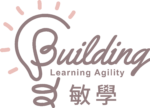Why do we make assumptions?
- Be aware of the “single stories” and uncover and question our assumptions of learning
- Connect new teachers’ experience, skills and knowledge with KIS context
- Invite new staff to contribute their skills and knowledge with KIS current stories
We all make assumptions, either consciously or unconsciously. Our perceptions are included by the culture we grew up in, by the people we often talk to, by the song we listen to, by the stories we read, by the news we consume and so on. Additionally, our human instincts also influence our perspectives and decision-making process. In the book, Factfulness, Hans Rosling drew our attention to the ten dramatic instincts that seem to be hard-wired into most peoples’ heads. Some of the assumptions we hold are more conscious than others. Some assumptions are true and some assumptions are false. Some assumptions we make about each other are also sometimes stereotypes.
What assumptions that people make about you?
- Has someone else ever made an assumption about you because of some aspect of your identity?
- Was it a positive or negative one?
- How did you find out about the assumption?
- How did you respond?
The power of stories
- Do we assume learners know how to collaborate?
- Do we assume learners can automatically generate new knowledge?
- Do we assume learners’ abilities?
- Do we assume learners’ identities?
- Do we assume learners can relate to the examples and analogies that we use?
* Learners here refers to both teachers and students as we are a community of learners.
Dr. Michele DiPietro compiled a checklist of assumptions that can impact motivation, learning and performance. I found this resource is helpful to help us reflect on our assumptions and help to inform decision making.
Our story is our store of knowledge. We bring our story to every situation, it informs our understanding and actions. However, as the novelist, Ben Okir, pointed out, we also need to “Be aware of the stories you read or tell; subtly, at night beneath the waters of consciousness, the are altering your world.” Famous TED talk speaker, Chimamanda Ngozi Adichie, also sated that “The single story creates stereotype and the problem with stereotype is not that they are untrue but they make one story become the only story.” The same notion should apply to learning. Learning is a journey and this journey is made up of different stories. As an educator, we should strive to use different strategies and tools to collect evidence in order to confirm or reject these assumptions.
What are our assumptions?
- “KIS states that it is a caring community, therefore I assume that most students at KIS…”
- “In terms of teacher collaboration, I assume that most teachers at KIS…”
- “As an educator I assume that teaching and learning at KIS looks/feels/sounds like…”
- “As an IB World School I assume that assessment of learning at KIS will be…”
How to we confirm or reject our assumptions?
Personal reflections
Additionally, when new staff joined an organization, it might be beneficial for them to have opportunities to explore the institute’s mission, values and guiding philosophy. This practice relates to the Mental Model that is featured in Peter Senge’s book “The Fifth Discipline” republished in 2006. In order to develop the organization’s working capacities, it requires us to confirm or reject our assumptions, and require new skills so that we understand the system and take appropriate actions.
Here is the presentation that used for our teachers.
References
- DiPietro, M. (2007). Checklist of Assumptions That Can Impact Motivation, Learning and Performance. Eberly Center for Teaching Excellence, Carnegie Melon.
- Senge, Peter M. The Fifth Discipline: the Art and Practice of the Learning Organization. 2nd ed., Cornerstone, 2006.

Thank you for this post, Alison. When schools face new problems, it’s necessary to revisit what we might influence in order to define and understand the new issues and co-create decisions that stay made. To do that we need to look within at identity, which closely hold assumptions, before we can intentionally state our intentions, which in turn shape our attentions, and lead to our actions.